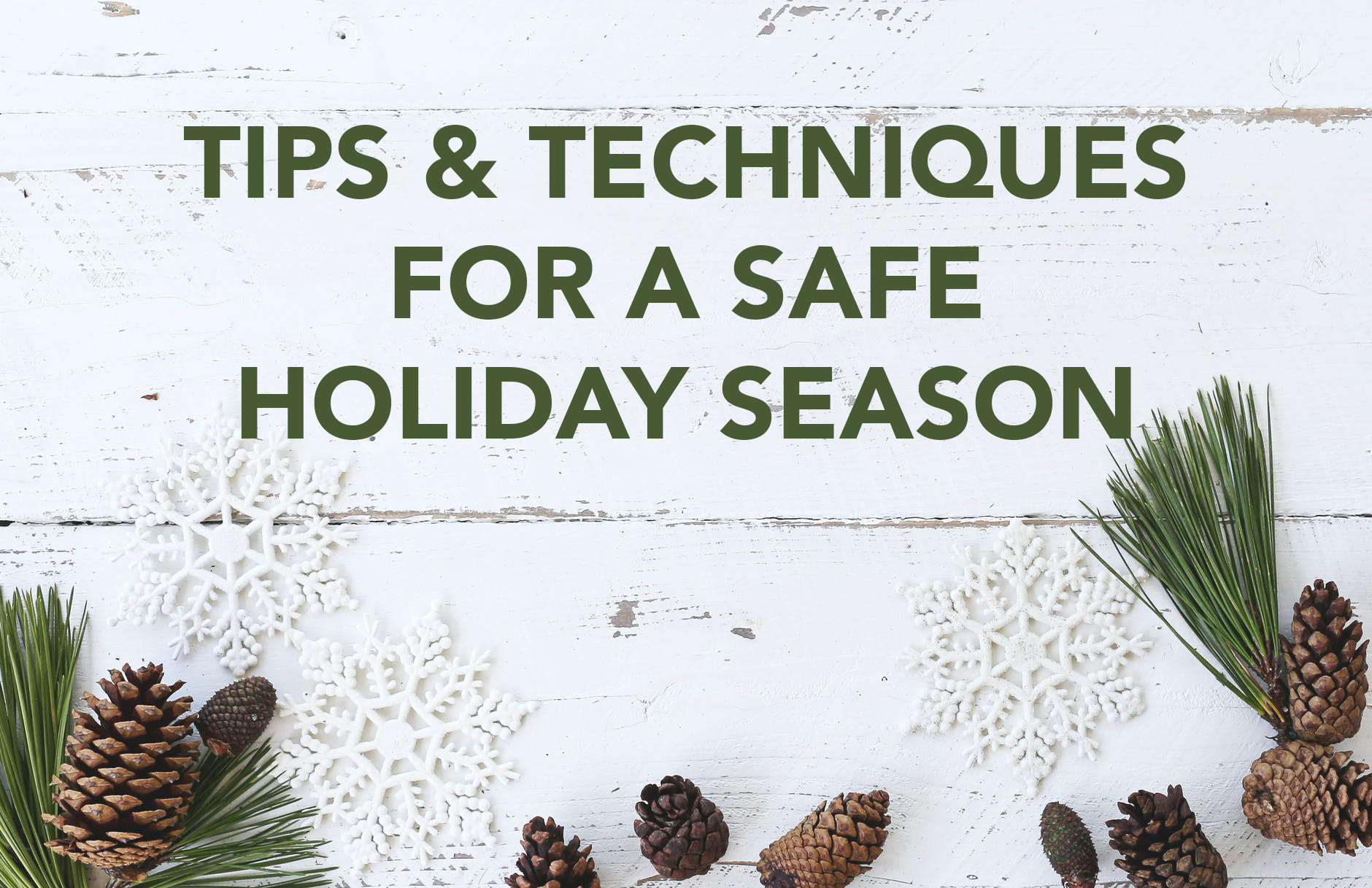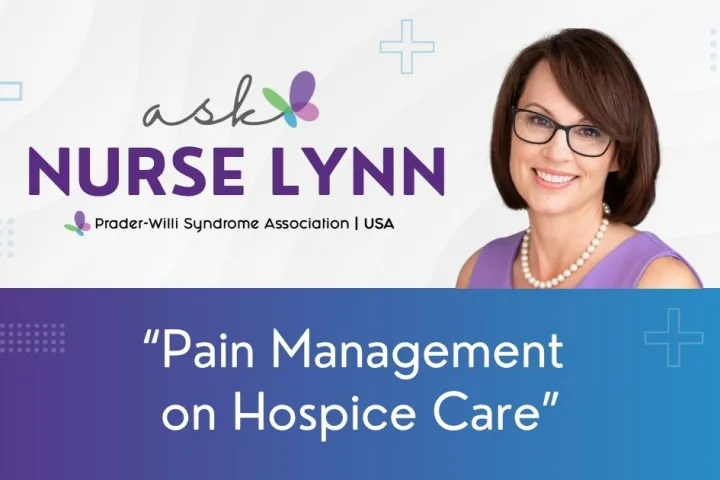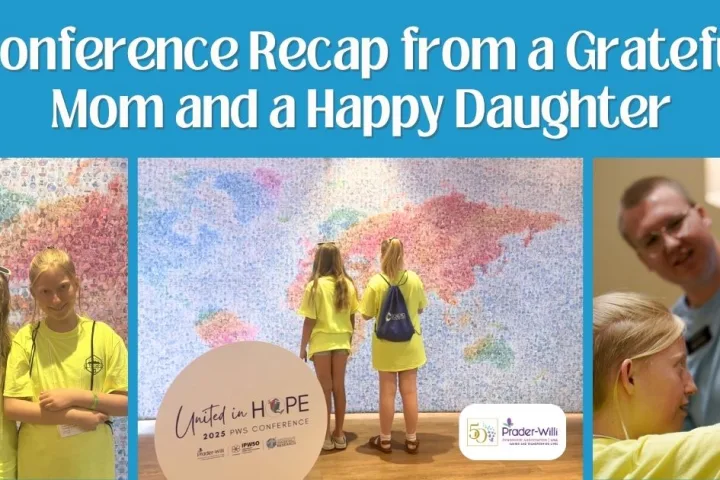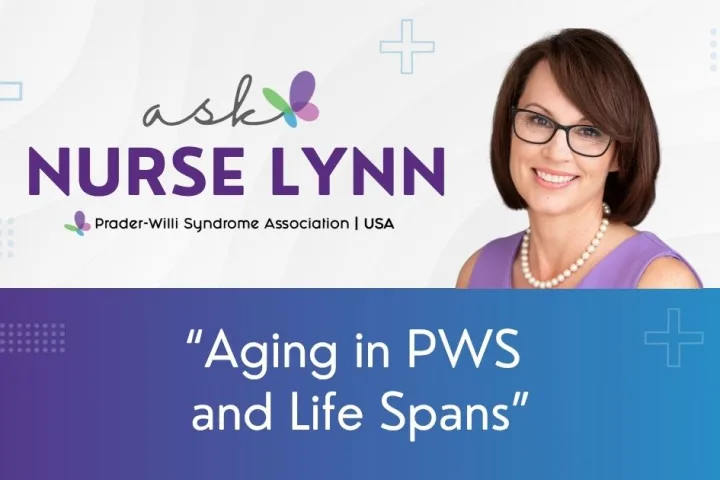Whatever holiday you and your family celebrate, PWSA | USA wants to help you make it both fun and safe. The key is to plan well ahead of time, incorporating the strategies outlined in this article.
Celebrate Winter Holidays Safely
Many of these tips can carry over to other holidays celebrated during the winter months
Replace those cookies and milk left out for Santa on Christmas Eve with your child’s photo and handwritten or colored card thanking Santa for his generosity. This will help reduce food-related anxiety and help your loved one sleep more peacefully on Christmas Eve.
Stockings hung by the chimney with care don’t need to include candy. Little toys, fidget spinners, stickers, and seasonal knick-knacks are great stocking stuffers that don’t cause food-related anxiety. Sugarless gum for older kids might be fine, but chocolate Santas and peppermint candy canes can cause anxiety, interfere with peaceful sleep, and lead to unwanted behaviors on Christmas day. Eliminate candy and food items from everyone’s stocking and be sure to let your loved one know beforehand that Santa knows not to fill those stockings with candy!
After the present(s) are opened, the rest of the day should include food-free activities. Arts, crafts, puzzles, games, and music and dancing interspersed throughout the day are all great fun and encourage social interaction without triggering food anxiety.
Whether you’re staying at home or going to Aunt May’s, food planning is critical. Realistically factor in the limits of your loved one’s PWS symptoms. If they have never been able to manage their behavior when there is easy access to food such as at a buffet table, then you probably don’t want to put this stress on them – or you and your family. If Aunt May always has a big buffet followed by an open cookie and dessert table, you might time your visit to include just one or the other. Be sure to keep the lines of communication open with Aunt May, who may be amenable to changing her food serving plan so that you and your family can stay longer. Otherwise, it might be best to invite Aunt May to Christmas dinner at your own house, where food security can be more easily maintained.
Wherever you enjoy your holiday dinner, have a clear plan and make sure that the plan is reviewed with your loved one well in advance of the event.
Creating a plan is always more effective when it’s done with the individual with PWS. This might sound like, “We’re going to Aunt May’s for Christmas supper! If you’d like, you can take one of your new toys with you. There will be a buffet table and lots of food so we need to make a plan to keep you safe and so we all have fun. You will have plenty of food, no worries! Do you want to Mom to fix your plate or do you want Dad to fix your plate?” Factor in the answer to your plan. “Mom and Dad and Cousin John will make sure you are safe. Do you want Mom or Dad or Cousin Jim to supervise first? Second?” Factor in the answers to your plan. “We think that ‘managing your body well’ is when you use a friendly voice, when you play safely with your cousins, when you ask for anything you’d like to play with or eat. What would you add to the list of things that describe ‘managing your body well’?” Factor these into your plan. “We think that ‘unwanted behavior or your body is not safe’ are when you yell or cry or take anything or any food without first asking and receiving permission.’ What would you add to the list of things that describe ‘unwanted behavior or not being safe’?” Factor these into your plan. “If there is an unwanted behavior or you are not being safe with your body, our plan is to go outside of Aunt Mary’s house. Would you rather we drive straight home and miss the rest of the party or would you rather go to the car and try to regain control of your body? Mom or Dad will be the decider of whether your body is safe and when it is time to return to the party.” Factor the answer into you plan.
Factor in everything you think could be an “issue,” talk about it with your loved one, and finalize the plan. It is far better to address everything beforehand and include it in the plan than it is to hope there’s not a problem. And remember, whatever you write in your plan, you must follow it or making behavior plans in the future is meaningless.
Congratulations, you have just created a collaborative plan with your child, one that is far more likely to lead to a less stressful and fun holiday celebration!
Remember that punishment is generally not effective with persons with PWS and often makes behavior worse because most people have a hard time connecting cause to effect. So don’t try to use “you won’t be able to play with your new toy” or “we will leave early” as a threat or punishment for unwanted behavior. It will backfire! Instead, treat “leaving early” as a natural consequence to unwanted behavior or the inability to manage one’s body safely. You might also include a certain amount of cool-down time in the car prior to actually leaving.
Review the plan and schedule with your child (no matter their age) prior to the event. Discuss the schedule of the day in terms of order of events rather than specific times. The chaos of the holidays makes it hard to predict that dinner will happen at six o’clock on the dot, but easier to predict that dinner will happen after the family card game.
Review the food plan with your child (no matter their age) prior to the event. If the dinner is a buffet, discuss in unambiguous terms how you and your child will go through the line. “Pick reasonable portions” is open to subjective interpretation and by extension, open to argument. “Pick ½ cup of mashed potatoes, one slice of meat, ½ cup serving of cooked vegetables, and one slice of pie” is precise and not open to interpretation or subjective opinion. If you are preparing your child’s plate (which is always a good option), you will have told them well in advance that this was the plan, and you’ll have reassured them of your criteria for plate design, e.g., “Don’t worry, I’ll be sure to include a little bit of everything offered.” If this creates anxiety, it might be necessary to stipulate that your child wait politely at the table rather than stand next to you as you make up his plate in the buffet line.
“If everyone is watching then no one is watching.” This applies to all food-centric holidays and get-togethers. Make sure there is an explicit plan about who is supervising the person with PWS and when. Be sure to tag-team so that no single individual is overloaded with responsibility. If a relative is educated and aware of the challenges and techniques, include them in the tag-team chain as well. Serious food-related health issues, including death, occur at holiday gatherings more than any other time. Always supervise your loved one.
Reward good behavior. In the same plan that outlines what to do in the case of poor behaviors, be sure to include rewards for good behavior. Good behavior includes sitting patiently at the table while the parent or guardian prepares the meal, cutting food into small pieces before eating it, and practicing turn-taking in conversations. Praise and attention are often the best rewards: give immediately for the most immediate positive effect. Avoid major rewards like “if you follow your behavior plan at Aunt May’s house, we’ll go to Disneyland” because it generally creates stress and anxiety as the child starts worrying about Disneyland. Verbal praise is often extremely rewarding so use it generously for anything and everything: “I am so proud of you waiting so patiently!” Or if you are using some kind of reward system: “You are playing so nicely with your cousins! You have earned a chip towards the six chips you need for us to see a movie together tomorrow!” Never threaten or remove a chip for an unwanted behavior because this will backfire!
Celebrate New Year’s Eve Safely
For a champagne toast (or any serving of alcohol), be aware of potential drug interactions. If in doubt, check with a pharmacist. This is easy to do when you pick up their prescriptions. The pharmacist can then take into account all of the medications and give you an informed recommendation.
Have fun!
Holiday celebrations can be stressful even when we’re not working hard to keep our loved one with PWS safe. So after the event, take a bit of time to reward and take time to take care of YOU. No one expects a car to run on empty, and the same is true of people. When you are at your best, you are better able to help your child. Do what it takes to refuel your energy. If you notice stress taking a toll on you, find a way to do something that eases that stress. For some people, that might mean taking a 15-minute walk or a warm bath at the end of the day. For others, that might mean creating a date night with your spouse or going out with some friends.
Share this!





 Jennifer Bolander has been serving as a Special Education Specialist for PWSA (USA) since October of 2015. She is a graduate of John Carroll University and lives in Ohio with her husband Brad and daughters Kate (17), and Sophia (13) who was born with PWS.
Jennifer Bolander has been serving as a Special Education Specialist for PWSA (USA) since October of 2015. She is a graduate of John Carroll University and lives in Ohio with her husband Brad and daughters Kate (17), and Sophia (13) who was born with PWS. Perry A. Zirkel has written more than 1,500 publications on various aspects of school law, with an emphasis on legal issues in special education. He writes a regular column for NAESP’s Principal magazine and NASP’s Communiqué newsletter, and he did so previously for Phi Delta Kappan and Teaching Exceptional Children.
Perry A. Zirkel has written more than 1,500 publications on various aspects of school law, with an emphasis on legal issues in special education. He writes a regular column for NAESP’s Principal magazine and NASP’s Communiqué newsletter, and he did so previously for Phi Delta Kappan and Teaching Exceptional Children. Evan has worked with the Prader-Willi Syndrome Association (USA) since 2007 primarily as a Crisis Intervention and Family Support Counselor. Evans works with parents and schools to foster strong collaborative relationships and appropriate educational environments for students with PWS.
Evan has worked with the Prader-Willi Syndrome Association (USA) since 2007 primarily as a Crisis Intervention and Family Support Counselor. Evans works with parents and schools to foster strong collaborative relationships and appropriate educational environments for students with PWS. Dr. Amy McTighe is the PWS Program Manager and Inpatient Teacher at the Center for Prader-Willi Syndrome at the Children’s Institute of Pittsburgh. She graduated from Duquesne University receiving her Bachelor’s and Master’s degree in Education with a focus on elementary education, special education, and language arts.
Dr. Amy McTighe is the PWS Program Manager and Inpatient Teacher at the Center for Prader-Willi Syndrome at the Children’s Institute of Pittsburgh. She graduated from Duquesne University receiving her Bachelor’s and Master’s degree in Education with a focus on elementary education, special education, and language arts. Staci Zimmerman works for Prader-Willi Syndrome Association of Colorado as an Individualized Education Program (IEP) consultant. Staci collaborates with the PWS multi-disciplinary clinic at the Children’s Hospital in Denver supporting families and school districts around the United States with their child’s Individual Educational Plan.
Staci Zimmerman works for Prader-Willi Syndrome Association of Colorado as an Individualized Education Program (IEP) consultant. Staci collaborates with the PWS multi-disciplinary clinic at the Children’s Hospital in Denver supporting families and school districts around the United States with their child’s Individual Educational Plan. Founded in 2001, SDLC is a non-profit legal services organization dedicated to protecting and advancing the legal rights of people with disabilities throughout the South. It partners with the Southern Poverty Law Center, Protection and Advocacy (P&A) programs, Legal Services Corporations (LSC) and disability organizations on major, systemic disability rights issues involving the Individuals with Disabilities Education Act (IDEA), Americans with Disabilities Act (ADA), and the federal Medicaid Act. Recently in November 2014, Jim retired.
Founded in 2001, SDLC is a non-profit legal services organization dedicated to protecting and advancing the legal rights of people with disabilities throughout the South. It partners with the Southern Poverty Law Center, Protection and Advocacy (P&A) programs, Legal Services Corporations (LSC) and disability organizations on major, systemic disability rights issues involving the Individuals with Disabilities Education Act (IDEA), Americans with Disabilities Act (ADA), and the federal Medicaid Act. Recently in November 2014, Jim retired.